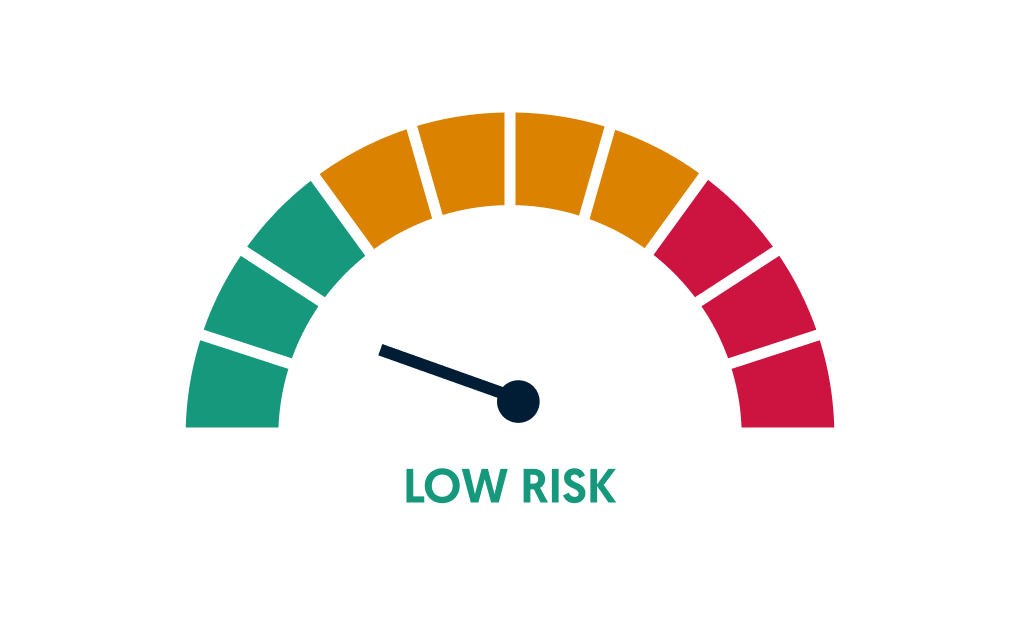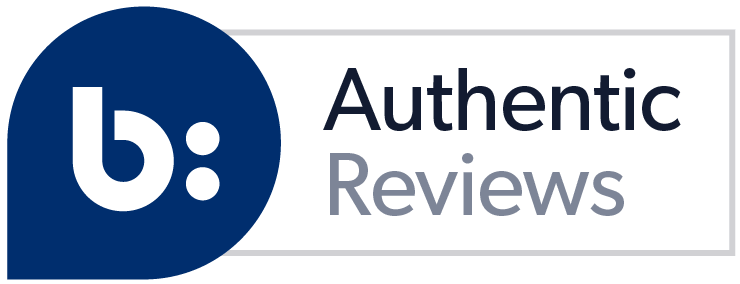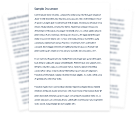Confidentiality Agreement (One Way)
This Confidentiality Agreement (One Way), is a legal document that you can use to disclose confidential information to another party, while protecting either party from distributing that information to any other person or entity.
4.7 (40 reviews)
Last updated February 24, 2025
Under 5 minutes
Suitable for Australia
Written by Edwin Montoya Zorrilla
Reviewed by Damin Murdock
Document Overview
A Confidentiality Agreement (One Way) is a legal document that you can use to disclose confidential information to another party, while legally forbidding the recipient from disclosing that information to any person or entity. This document is only enforceable if it is signed by you and the other party, therefore it is crucial that it is signed before you share any confidential information.
If you would like confidential information provided by both parties to be protected we recommend using our mutual Confidentiality Agreement.
The Legal Risk Score of a Confidentiality Agreement (One Way) Template
Our legal team have marked this document as low risk considering:
- One risk involves the potential for unauthorized disclosure or misuse of confidential information, which could lead to significant losses or damages for the Disclosing Party.
- Another risk is the ambiguity around what constitutes "public domain," which could lead to disagreements and potential breaches if the Recipient Party misinterprets the confidentiality status of certain information.
- There is also a risk that the Recipient Party may face substantial financial burden if found in breach of the agreement due to the requirement to cover all costs and expenses related to enforcing the agreement.

Confidentiality Agreement (One Way) Checklist
Complete your free Confidentiality Agreement (One Way) with our checklist
Verify Execution Method
Ensure that the signatures on the agreement are delivered either by facsimile or transmitted electronically in a tagged image format file (TIFF) or portable document format (PDF), as these are considered valid forms of delivery.
Deliver Original Copies
After transmitting an executed counterpart, ensure to deliver an executed original copy of the agreement to the receiving party within 10 business days as stipulated.
Maintain Confidentiality
Continuously uphold the confidentiality obligations by ensuring that all confidential information is used solely for the specified purpose and not disclosed to any unauthorized parties.
Notify and Address Breaches Promptly
In case of any unauthorized disclosure or use of the confidential information, immediately notify the Disclosing Party and take all necessary steps to mitigate any potential damages or further breaches.
Use this Confidentiality Agreement (One Way) if:
- You would like to disclose confidential information
- You would like to stop confidential information from falling into the wrong hands; and
- You would like to protect the confidential information of one party.
What does the Confidentiality Agreement (One Way) cover?
- A description of the confidential information;
- Confidential rights and obligations of the parties;
- Protection of sensitive information;
- Return of confidential information at the end of the agreement;
- Obligations regarding proper use of the information; and
- Circumstances where disclosure is permitted.
What happens if a Confidentiality Agreement is breached?
When the time of disclosure is during the time period specified before the termination of this agreement. If both parties have expressed consent prior through signature, the agreement is a binding legal contract that outlines a confidential relationship between the vendor/suppliers and the other party. Therefore, when a breach or violation occurs, you are able to claim rights in dispute against the violating disclosing party. These rights are outlined in the provisions of this agreement - some specifications include; an injunction, damage for loss, court order. The most commonly found right is if an employee breaches an agreement with a business/business owner then the employee can be immediately terminated.
What type of information can be covered in a Confidentiality Agreement?
Subject matter in the entire agreement is broad and can be customised to your needs. Common information that can be covered is inclusive of but not exhaustive to; patents, copyrights, financial information, customer lists, trade secrets. You can use this Lawpath template as a base and then customise the document accordingly.
How long is a Confidentiality Agreement effective for?
It is not an essential element of a confidentiality agreement to impose a specific time-frame. It is recommended that your document should not contain a time-frame and that an obligation of confidentiality remain until the information is no longer classified as confidential and enters the public domain. In cases where the parties decide to agree on a time-limit, to ensure enforceability, the deadline must not go over what is reasonably necessary to protect the legitimate interests of your business.
Will my Confidentiality Agreement be enforceable overseas?
Like many contracts, this document is only enforceable in the country or state specified in the agreement. Similarly, this document is governed by the law/s in the respective country or state it is executed in. If you intend to take legal action to enforce this agreement or seek remedies for its breach, you will need to do so in the State or Territory Court the document was executed in.
Should I ask my employees and interns to sign a Confidentiality Agreement?
One of the most common forms of confidentiality agreements exists between an employer and employee. Confidentiality agreements are beneficial in the context of employment because they allow for a free-flow of confidential information within the workplace to maximise business productivity, while at the same time prohibiting employees from using or disclosing confidential information. Employment agreements also often include a binding confidentiality clause.
Who else should sign a Confidentiality Agreement?
Clients
When engaging with clients or potential clients, a business or entity may have the clients sign a confidentiality agreement when sensitive information is disclosed.
Vendors
A business that relies on third-party vendors who may have access their confidential information should get the vendor to sign a confidentiality agreement during their business relationship to ensure their information is protected.
Contractors
Having an independent contractor sign a confidentiality agreement where they may have access to confidential information during their employment, would prevent the contractor from acting on the information and protect the contracting entity.
Investors
Investors may be asked to sign a confidentiality agreement when commercially sensitive information is shared between the parties to ensure the information does not go public, and the information is protected.
What happens if the terms of a Confidentiality Agreement are broken?
A confidentiality agreement sets out the rights of a party in the event of a breach by the other party. These rights may include:
- Obtaining an injunction in the event of an anticipatory breach (to prevent information from being released).
- Monetary compensation (damages) where a breach has already occurred.
Other names for this document include:
- NDA;
- Non-Disclosure Agreement;
- Confidential Disclosure Agreement (CDA);
- Proprietary Information Agreement (PIA);
- Secrecy Agreement (SA);
- Confidentiality Contract; and
- Gag Order.
Other documents you may need:
- Confidentiality Agreement (Mutual)
- Full Time Employment Agreement (Long Form)
- Confidentiality Policy
- Heads of Agreement
- Intellectual Property Agreement
Further information
- Can I issue a Non-Disclosure Agreement (NDA) for Past Information?
- What Happens If There Is A Privacy Breach Of NDA Information?
- Top 5 Enforceability Issues For NDAs
- What Is the Difference Between Privacy and Confidentiality in Australia?
- 10 Things To Know About Non-Disclosure Agreements
- Should You Use A Mutual or One-Way NDA?
View Sample Confidentiality Agreement (One Way)
It's never been so easy
Sign-up to a free Lawpath account
Get started and we'll take care of you. It's that easy.
Browse our 500+ legal documents
Browse our 500+ legal documents to find the perfect match to cover your business needs. We've got Compliance, Employment, Service agreements and more.
Collaborate with e-Sign and Sharing
Having access to your legal documents has never been easier. You can request e-signature, share the document and download for an efficient collaboration.
Create unlimited legal documents and eSignatures for only $39/month.
Upgrade to a Lawpath legal plan to boost your new business.


Here's what people say about Lawpath's Confidentiality Agreement (One Way)
Reviews are managed by BazaarVoice and comply with the BazaarVoice Authenticity Policy. Reviews are independently verified by BazaarVoice and detail our customers' real experiences.
0 reviews
Most Recent
Highest to Lowest Rating
Lowest to Highest Rating

